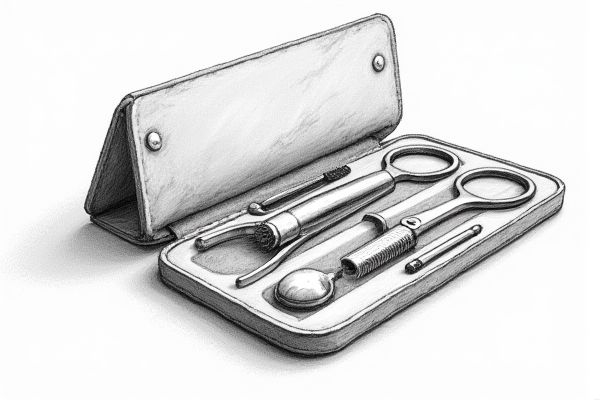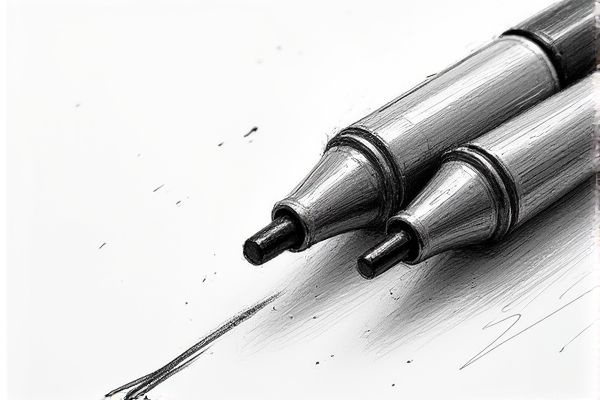The banjo, a beloved instrument often associated with bluegrass and folk music, has seen a resurgence in recent years as musicians explore its unique sound. When searching for the ideal banjo, certain brands stand out for their exceptional quality and craftsmanship. Companies like Deering, Gold Tone, and Recording King have long been recognized for producing top-notch instruments that cater to both beginners and seasoned players. Join us below as we explore some of the best banjo brands currently available, offering instruments that capture the spirit and sound of this iconic instrument.

Illustration of banjo
Best brands of banjo in 2025
Deering
Deering Banjo Company, founded in 1975 by Greg and Janet Deering, is the largest banjo maker in the world, having produced over 100,000 banjos in just over 44 years. The company dominates the U.S. market with an estimated 80% to 90% share and has seen significant growth, almost doubling its sales since 2009 to a projected $5 million annually. Deering's banjos are renowned for their high-quality craftsmanship and innovation, catering to various musical styles with models such as open-back, resonator, 6-string, and custom-made instruments. The company's global reach has expanded, with exports accounting for up to 30% of their business, and they leverage social media and online platforms to enhance their customer engagement and sales. Deering's commitment to customer satisfaction and attention to detail has made it a favorite among musicians, including Taylor Swift, Steve Martin, and Keith Urban.
Gold Tone
Gold Tone is a highly regarded brand in the banjo industry, known for producing high-quality, affordable instruments. Founded in 1993 by Wayne and Robyn Rogers in Titusville, Florida, Gold Tone has established itself as one of the largest banjo manufacturers, alongside Deering and Recording King, with a significant market share. Their banjos are praised for their rich, warm tones and excellent setup, making them suitable for both beginners and professionals. Gold Tone's commitment to innovation and quality has earned them a loyal customer base, with many users appreciating the value and performance of their instruments, even at lower price points. The company's mission is to inspire musicians of all levels with their fretted instruments. For more information, visit their official website.
Recording King
Recording King is a renowned brand in the banjo industry, known for its high-quality instruments that have been a staple since the 1930s when Gibson manufactured them for Montgomery Ward. Over the years, the brand has evolved, with modern Recording King banjos being produced in China and offering a range of models from budget-friendly options like the Dirty 30's series to more premium models such as the Madison Series. Recording King banjos are among the top-selling banjos, with Deering and Gold Tone, indicating their significant market presence. The brand's history and quality have made it a favorite among banjo enthusiasts, with some models priced as low as $299.99 and others reaching up to $1,799.99, catering to a wide range of players. For more details on their offerings, visit this banjo enthusiast forum.
Fender
Fender, although more renowned for its guitars, has a significant history in banjo production, particularly from the 1960s. Fender banjos, such as the Concertone and Artist models, were highly regarded for their quality and sound, with production initially in California and later transitioning to other countries like South Korea and China. These models, produced from 1966 to 1976, were favored by professional pickers for their loud, popping flathead sound and thin, fast necks. Despite Fender's limited involvement in banjo research and development, their banjos from this period remain highly valued. The company's acquisition of Salstrom Banjo Co. in the mid-1960s was a key factor in their banjo production.
Gibson
Gibson, although no longer actively producing banjos, was once a renowned manufacturer of high-quality banjos, with production ceasing around 2009 or 2010, partly due to the Nashville flood and rising production costs. Despite this, Gibson banjos remain highly respected, especially the vintage models, which are still sought after by many players. The banjo market, however, is relatively small, constituting about one percent of the acoustic guitar market, with other brands like Deering, Recording King, and Gold Tone now leading in sales. For more insights on Gibson's last production years, visit this forum discussion on the Mandolin Cafe.
Epiphone
Epiphone, a brand with roots dating back to 1873, has a notable history in producing high-quality banjos, particularly during the early 20th century. From 1924, Epiphone started producing its recording line of banjos, and by the 1930s, it was manufacturing a range of banjos that rivaled those of Gibson. Although the banjo production was a smaller segment compared to guitars, Epiphone's banjos were highly regarded by professionals. For instance, during the 1931-1956 period, Epiphone's total instrument production included a significant number of banjos, though they were outnumbered by guitars, with acoustic instruments totaling around 30,000 units, including a smaller but notable number of banjos. Today, Epiphone banjos, such as the Earl Scruggs Signature models, remain popular among musicians. For more details on their current offerings, visit the Epiphone banjos page.
Washburn
Washburn, established in 1883 in Chicago, is renowned for producing high-quality banjos, with a legacy spanning over 140 years. The brand has been a leader in the industry, becoming the largest mandolin maker in America by 1889. Washburn banjos, such as the B9 and B10 models, feature premium materials like mahogany resonators, aluminum rims, and Remo heads, ensuring outstanding tone and build. These instruments are equipped with advanced hardware, including geared 5th string Planetary tuners and chrome diecast tuners, enhancing their performance. With a commitment to quality and value, Washburn banjos are chosen by both professionals and amateurs alike.
Morgan Monroe
Morgan Monroe banjos are regarded as good value instruments, particularly for beginners and intermediate players, offering good volume, tone, and sustain. They are known for their sturdy construction, including a heavy tone ring and a three-ply block rim, although some models may come with cheaper hardware. Despite not matching the quality of high-end brands like Gibson or Deering, Morgan Monroe banjos are well-made and sound acceptable when properly set up. They are widely available and often praised for their affordability, with prices that can be significantly lower than those of premium brands. However, for professional-level sound, users may need to upgrade certain components. For detailed discussions and reviews, visit the Banjo Hangout archive.
Stelling
Stelling Banjo Works, established in 1974, is renowned for producing high-quality banjos, having crafted over 7,000 banjos, as well as a smaller number of mandolins and guitars. The brand, led by Geoff Stelling, has been a staple in the banjo community for nearly five decades, with models like the Red Fox gaining significant popularity since its introduction in 1990. Known for their meticulous craftsmanship and attractive designs, Stelling banjos are highly regarded for their sound and finish. The company's production includes a range of models, each showcasing exceptional quality and attention to detail. Despite Geoff Stelling's retirement and the closure of the company in 2022, Stelling banjos continue to be highly sought after by musicians.
Ome
Ome Banjo Company is renowned for its high-quality banjos, having tripled its production after relocating to new quarters in Boulder, where they now produce around 3 instruments per workday. Founded by musicians Kelley McNish and Ken "Antelope" Whelpton, along with another partner, the company aims for excellence, using superior materials like mahogany, rosewood, and brass. They have expanded their staff to seven and plan to produce 750 banjos in the next 12 months, with a strong focus on quality and meticulous craftsmanship. Ome banjos are marketed through retail stores in 40 states and have a low return rate due to their rigorous quality control. The company's commitment to using the best materials and ensuring each banjo is perfectly adjusted has earned them a reputable position in the banjo market. For further details about Ome Banjo Company, read this article.
















Leave a Reply
Your email address will not be published.